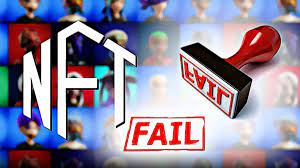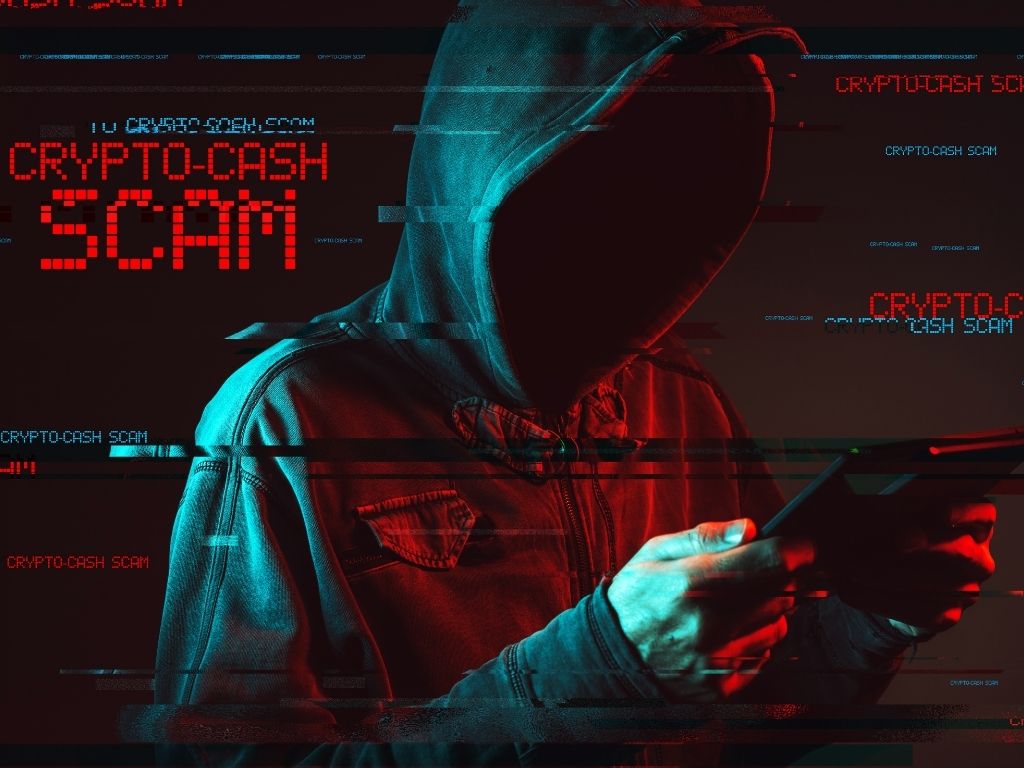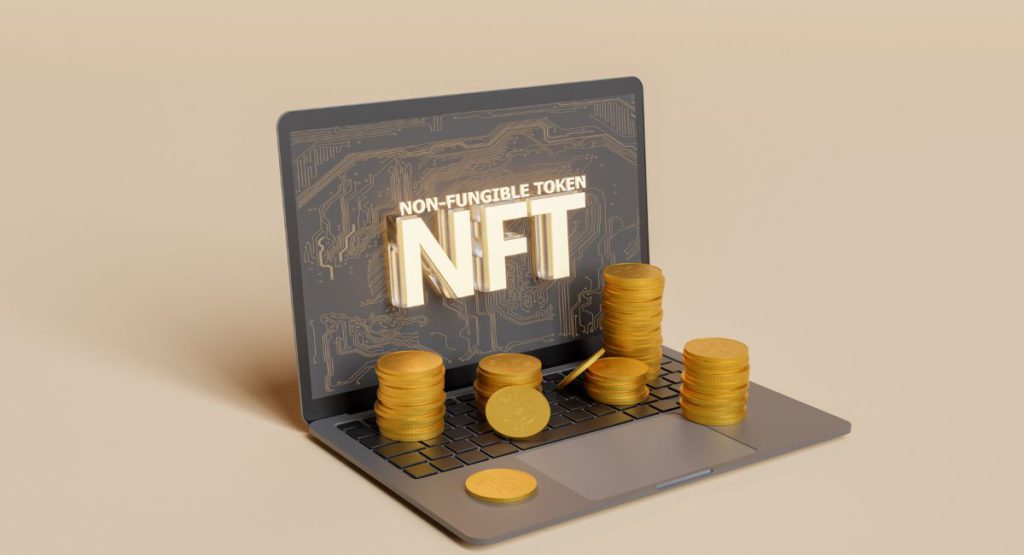Your Ultimate Guide To Know How To Escape NFT Phishing Scams

The growing popularity of Non-Fungible Tokens (NFTs) has brought about exciting opportunities for creators and collectors, but it has also attracted the attention of cybercriminals looking to exploit unsuspecting individuals through phishing scams. In this comprehensive guide, we’ll explore the world of NFT phishing scams and equip you with the knowledge and tools to navigate this digital landscape securely.
Understanding NFT Phishing Scams

NFT phishing scams involve fraudulent attempts to obtain sensitive information, such as private keys or login credentials, by posing as legitimate NFT marketplaces, platforms, or projects. These scams can take various forms, including fake websites, phishing emails, and social engineering tactics.
1. Verify URLs and Websites
Always double-check the URLs of NFT marketplaces and projects. Scammers often create convincing replicas of legitimate sites. Ensure the URL is correct and uses secure HTTPS protocols.
2. Be Wary of Unsolicited Emails and Messages
Avoid clicking on links or downloading attachments from unsolicited emails or messages. Legitimate NFT projects and marketplaces won’t request sensitive information via email or direct messages.
3. Use Hardware Wallets
Whenever possible, use hardware wallets to store your NFTs. Hardware wallets provide an extra layer of security by keeping private keys offline and away from potential phishing attempts.
4. Enable Two-Factor Authentication
Enhance your account security by enabling two-factor authentication (2FA) wherever possible. This adds an extra layer of protection, making it more challenging for attackers to gain unauthorized access.
5. Stay Informed
Keep yourself updated on the latest phishing tactics and scams circulating in the NFT space. Follow reputable sources, forums, and social media accounts for news and alerts regarding potential threats.
6. Verify Social Media Accounts
Scammers may create fake social media accounts to impersonate NFT projects or personalities. Verify the authenticity of official accounts through official websites or reliable sources before engaging.
7. Educate Yourself
Understand the common tactics used by scammers. Phishing scams often rely on creating a sense of urgency or excitement to trick individuals into taking impulsive actions. Stay vigilant and question unexpected or high-pressure requests.
8. Use Reputable Wallets and Platforms
Stick to well-known and reputable NFT wallets and platforms. Research and verify the legitimacy of the services you use before transferring funds or interacting with NFT projects.
9. Report Suspected Scams
If you encounter a potential phishing scam or suspicious activity, report it to the relevant authorities, the legitimate platform, or the NFT project. Timely reporting helps protect the wider community from falling victim to the same scams.
10. Perform Due Diligence
Before participating in an NFT project or marketplace, conduct thorough due diligence. Verify the project team, read reviews, and ensure that the platform has a history of legitimate transactions.
Also, read –Top Five AI NFT Projects That Represents Traditional Art
Top NFT Phishing Scams: Stay Informed and Protected

As the popularity of Non-Fungible Tokens (NFTs) continues to rise, so does the prevalence of phishing scams targeting unsuspecting individuals eager to participate in this burgeoning digital space. Here are some of the top NFT phishing scams you need to be aware of to safeguard your assets and personal information.
1. Fake NFT Marketplaces
Scammers often create counterfeit NFT marketplaces that closely mimic legitimate platforms. Unsuspecting users may unknowingly provide private keys or login credentials, leading to unauthorized access to their digital assets.
2. Phishing Emails and Messages
Phishing emails and messages impersonating well-known NFT projects or platforms are common. These messages may contain malicious links or attachments designed to capture sensitive information when clicked or downloaded.
WARNING!!
Big Phishing scam sent via email. It claims that users can claim an airdrop from @nansen_ai if they participate in the Open Beta.
I have been receiving legit emails from Nansen as they roll out Nansen 2, so I didn’t think this was out of the ordinary at first.
But… pic.twitter.com/HyUS7HleGX
— ricefarmer.eth 🍚 (@RiceFarmerNFT) November 11, 2023
3. Social Media Impersonation
Scammers create fake social media accounts, posing as NFT projects, artists, or influencers. They use these accounts to solicit private information, funds, or promote fraudulent projects.
4. Smart Contract Scams
In some cases, scammers deploy malicious smart contracts that promise lucrative returns or exclusive NFTs. Once users interact with these contracts, their assets can be compromised.
5. Fake Airdrops and Giveaways
Fraudulent airdrops and giveaways promise free NFTs or exclusive rewards to participants. In reality, these schemes are designed to trick users into providing private keys or other sensitive information.
6. Phony NFT Project Launches
Scammers create fake NFT projects, complete with websites and social media presence, to attract investors. After accumulating funds, they disappear, leaving investors with worthless or non-existent tokens.
7. Initial Coin Offering (ICO) Scams
Similar to traditional ICO scams, scammers launch fake NFT projects through initial coin offerings, enticing investors to contribute funds in exchange for tokens that hold little to no value.
8. Twitter Verification Scams
Impersonating well-known figures in the NFT space, scammers create fake Twitter accounts and offer verification services. Users pay for verification, only to fall victim to a fraudulent scheme.
9. Misleading NFT Wallets
Fake NFT wallet apps may appear legitimate but are designed to steal private keys and other sensitive information. Users should only download wallets from official and reputable sources.
10. False NFT Events and Partnerships
Scammers often fabricate NFT events, partnerships, or collaborations to lure users into participating. These events may request private information or involve fraudulent transactions.
Stay vigilant, verify sources, and prioritize security measures like two-factor authentication and hardware wallets. Be cautious of unsolicited messages, thoroughly research projects, and report any suspicious activities to protect yourself and the broader NFT community. By staying informed, you can enjoy the benefits of the NFT space while minimizing the risk of falling victim to phishing scams.

Conclusion
Navigating the world of NFTs comes with incredible opportunities but also requires a keen awareness of potential phishing scams. By staying informed, verifying sources, and employing security best practices, you can enjoy the benefits of the NFT space while safeguarding your digital assets. Remember, your ultimate defense against phishing scams is a combination of vigilance and education.
FAQs about NFT phishing scams
What are the common NFT scams?
Common NFT Scams:
Fake NFT Listings: Scammers create fraudulent NFT listings, often using popular or trending artists and projects to lure buyers into purchasing non-existent or illegitimate tokens.
Mimicking Authentic Platforms: Scammers replicate legitimate NFT marketplaces or auction sites, tricking users into engaging with what appears to be a genuine platform but is designed to steal funds or personal information.
Phony Collections: Fraudsters create fake NFT collections, misleading buyers into investing in what they believe to be rare or valuable digital assets that hold no actual value.
What are phishing scams in crypto?
Phishing Scams in Crypto:
Fake Websites: Scammers create websites that mimic legitimate crypto platforms, tricking users into entering their private keys or passwords. Once entered, the scammers gain control of the user’s crypto assets.
Social Engineering: Fraudsters use social engineering tactics, such as impersonating customer support or influential figures in the crypto community, to trick individuals into revealing sensitive information or transferring funds.
Phishing Emails: Users may receive emails claiming to be from reputable crypto exchanges or projects, directing them to click on malicious links or provide login credentials, leading to unauthorized access.
How trustworthy is an NFT?
Trustworthiness of an NFT:
Depends on the Source: The trustworthiness of an NFT depends on the legitimacy of the source. Established and reputable artists, platforms, and projects are generally more trustworthy.
Verification and Authenticity: NFT platforms often provide verification features to confirm the authenticity of digital assets. Buyers should look for verifiable information and proofs of authenticity.
Research: Conducting thorough research on the artist, project, or platform before purchasing an NFT can help ensure its trustworthiness. Community feedback and reviews are valuable resources.
Can you get a virus from an NFT?
Getting a Virus from an NFT:
Unlikely but Possible: Getting a virus directly from an NFT file is unlikely. NFTs are typically digital assets stored on blockchain platforms and do not contain executable code. However, downloading files from untrustworthy sources, such as non-official marketplaces, may pose risks.
Phishing Links: Clicking on links associated with fake NFT listings or engaging with phishing schemes related to NFTs can lead to malware or viruses. It’s crucial to only interact with reputable and secure platforms.
In all cases, users should exercise caution, conduct thorough research, and prioritize security measures to protect themselves from scams and potential security threats in the crypto and NFT space.



























































